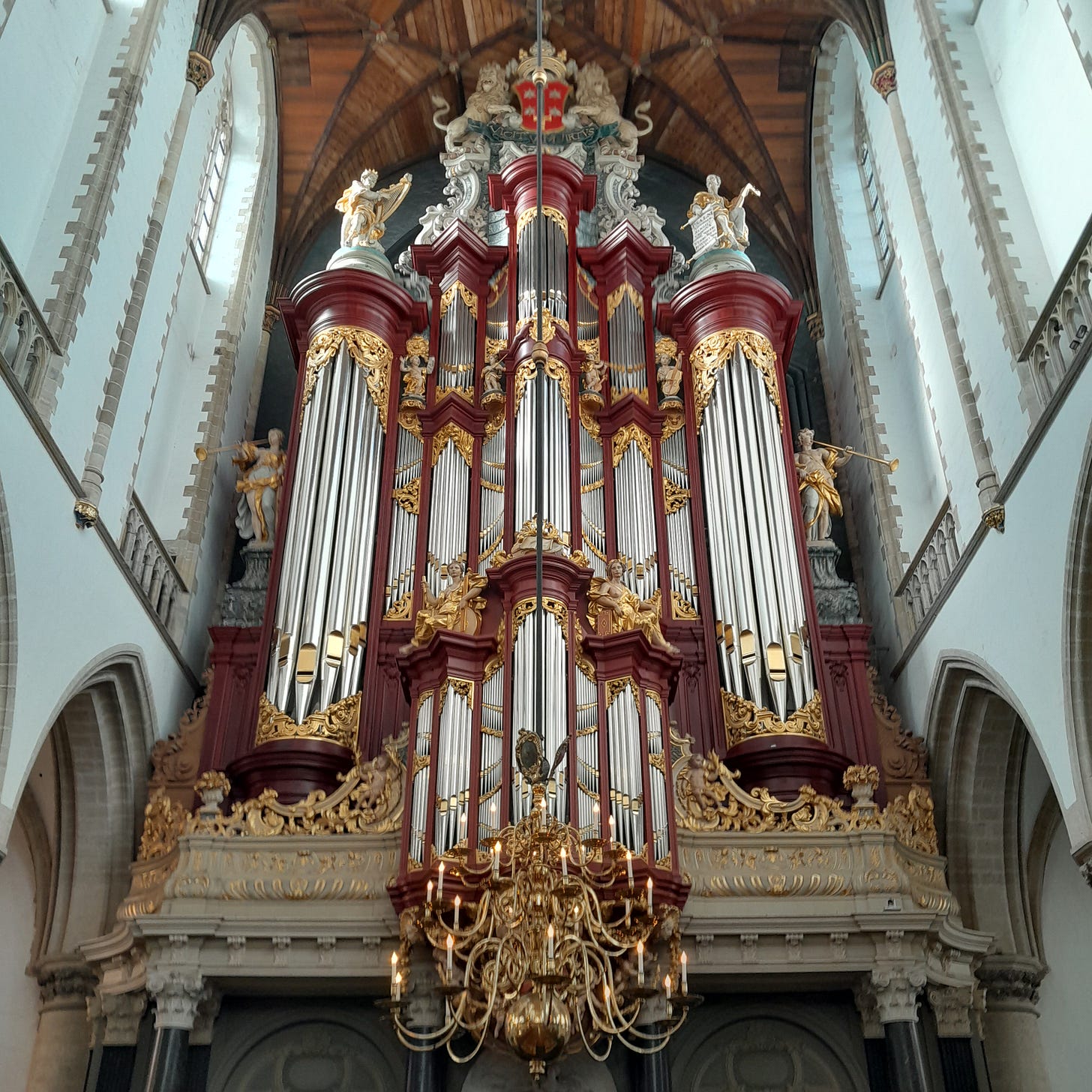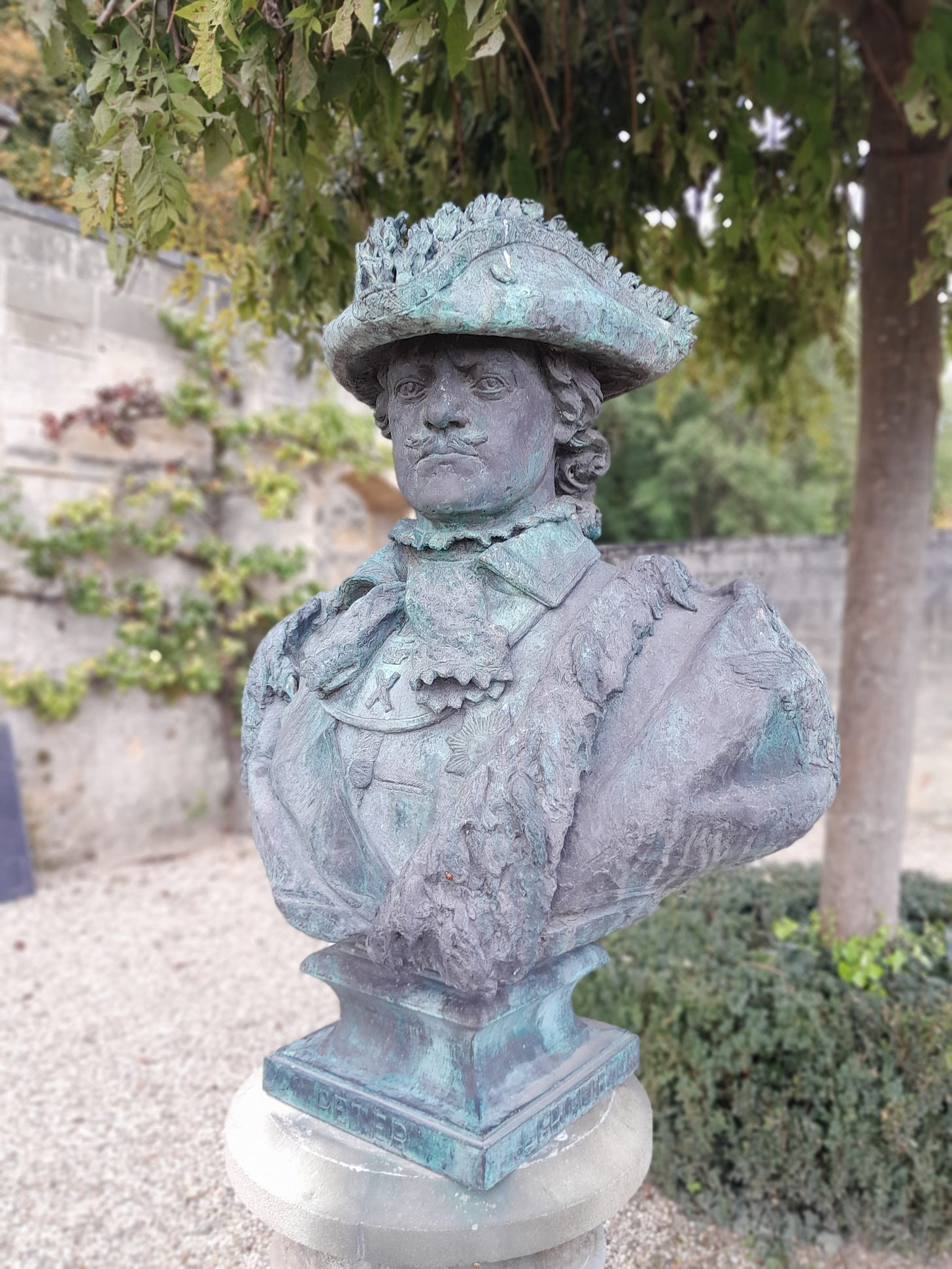Europeans are worried about us
My findings about European attitudes toward the U.S. are about as authoritative as when a television news crew goes to a diner in Nebraska and asks a bunch of old men in overalls what they’re thinking
Not every newspaper can afford a foreign correspondent these days. The Holland Sentinel certainly can’t. Here’s my November column, scheduled to appear on election day…
Europeans are watching the mid-term elections in the United States with many of the same feelings of dread, disbelief, and anxiety as most Americans.
When Joe Biden was elected president in 2020, most Europeans were relieved, but they were also skeptical that he would do much to restore the U.S. as a global leader—or even as a reliable ally, which the U.S. had been since the end of World War II.
The truth is, the European attitude toward the U.S. has changed dramatically over the last few years. And not for the better. They evaluate the European Union and their own systems of government much more positively than that of the U.S.
My findings about European attitudes toward the U.S. are about as authoritative as when a television news crew goes to a diner in Nebraska and asks a bunch of old men in overalls what they’re thinking about U.S. politics. But, hey, if television news crews can get away with it, I figure that I can too
.
I have been living and working in the Hague for a few months now, and I have been asking friends and neighbors what they think about my home country. Most are blunt in their assessment: Americans have lost their minds. (The Dutch, as I noted in my column last month, are blunt about most things, but on this subject I find them even more direct than usual.)
What has happened across the ocean is—let’s say—worrisome to them. Even the remarkable alliance that formed earlier this year to protect Ukraine from Russian invasion seems more like an anomaly to them, not the best indicator of how things between us really are.
Americans tend to look across the ocean and see in European countries a socialist nightmare—with high taxes, government-run health care, and Muslim minorities creating a hellscape of crime and anarchy.
In 2015, for example, then-Republican congressman Pete Hoekstra made comments about “no-go zones” in the Netherlands due to the Muslim migration. He even noted that cars and politicians were being set on fire. “Chaos” was the word he used to describe it. (Hoekstra issued an apology in 2018 when a video of his remarks became public and after he had been named U.S. ambassador to the Netherlands.)
Frankly, I don’t see chaos or anything close to it. The people I meet are generally happy with their system of government and even their high taxes. What they get in exchange for taxes makes paying them seem okay. Mostly.
Is there crime here? Yes. (I was encouraged to buy a lock for my bike that’s worth more than the bike, and I’m glad I did.) Are immigrants from Muslim-majority countries creating problems? If they are, it’s nothing close to what American politicians suggest.
What newcomers (like me) observe is that immigrants to European countries are being absorbed rather well into the cities here. Immigrants are finding work, paying taxes, having families, and learning to speak new languages. Like most immigrants they tend to find each other and speak the language of the “old country” when they’re together, but they are adapting. The young, as always, adapt more quickly than the old. All in all, it’s remarkably uneventful.
European countries even take eight of the top ten spots on the annual United Nations World Happiness Report. The Netherlands is ranked number five. The U.S. is at 16, just ahead of the United Kingdom.
I suppose that cultural stereotyping goes both ways. Americans tend to impose their preconceptions on Europeans, and something similar happens when Europeans look at Americans. When I wear my khaki pants, smile with too many teeth showing, and offer an overly gregarious handshake, I usually confirm what Europeans think of Americans.
But something seems different this time. Something more serious. The worry around me is palpable. And not surprisingly some express their feelings with derision, as though what Americans are experiencing right now is a kind of comeuppance. For too long we presented ourselves as the “city set upon a hill,” the bright beacon of democracy for all the world to see and emulate.
And now, no one I know is all that jealous of what they’re seeing across the Atlantic. If that’s democracy, they’ll take their chances with the parliamentary system, even if there are dozens of political parties, each clamoring for a tiny share of the electorate.
My personal favorite? Party for the Animals—Partij voor de Dieren—which advocates for animal rights and actually elected three senators (out of 75) in the most recent election. Now, that’s democracy.
Photos: (At the top) There are a lot of old churches in the Netherlands. (Below) There are lot of busts of older, wealthy guys too.







Thank you for a great column!
What are you saying about Dutch attitudes toward us seems spot on to me.
I love the last pic too. :)
It all makes me very sad.... thanks for your information and perspective, it's a helpful reminder of the diversity of our experiences.